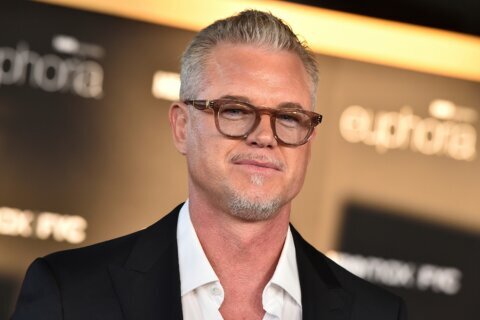WASHINGTON — The X-Men will always hold a special place in Hollywood’s heart, for it was they who kicked off a new millennium of superhero flicks.
The original trilogy evolved from good to great to poor, with a stellar “X-Men” (2000), an awesome “X2” (2003) and a disappointing “Last Stand” (2006).
After two standalone Wolverine interludes, a similar trajectory now awaits the franchise’s prequel trilogy with a stellar “First Class” (2011), a sensational “Days of Future Past” (2014) and another third chapter that takes a notable step backward in “Apocalypse.”
Did mutant movie history just repeat itself?
Yes, but there’s still a good bit to like here.
Set in 1983, ancient Egyptian pharaoh En Sabah Nur reawakens after centuries of dormancy as the mutant god Apocalypse (Oscar Isaac). While most villains want to take over the world, Apocalypse is hellbent on “cleansing” it. So, he recruits his Four Horsemen of the Apocalypse: Magneto (Michael Fassbender), Archangel (Ben Hardy), Psylocke (Olivia Munn) and Storm (Alexandra Shipp).
It’s up to Professor Xavier (James McAvoy) to stop him. The mentor rounds up his trainees at the Mutant Academy, namely young Jean Grey (Sophie Turner), who suffers from psychic night terrors, and young Cyclops (Tye Sheridan), who can’t control his eye lasers. Teaming with Mystique (Jennifer Lawrence), Beast (Nicholas Hoult), Quicksilver (Evan Peters), Nightcrawler (Kodi Smit-McPhee) and Jubilee (Lana Condor), the ragtag X-Men are mankind’s only hope at fending off Apocalypse.
By now, you’ve no doubt seen the shaky reviews on aggregate sites. Have no fear, X-Men fans; take comfort in knowing that this is likely a case of the “piling on” pendulum. Perhaps critics feel bad for underrating “Batman v Superman” as a 1-star piece of trash (it was more of a 2-star letdown), then over-correcting by overrating “Civil War” as a 4-star masterpiece (it wasn’t, it was a solid 3 stars).
Don’t get caught up in waves of opinion. It’s best to think for yourself. Go see “Apocalypse.”
Among the 2016 superhero slate, it’s far better than “Batman v Superman” and about on par with the crowded excitement of “Civil War,” none of which are as inventive, refreshing and satirical as the surprisingly cinesthetic, fourth-wall-breaking blockbuster “Deadpool,” still the best of the year.
The first half of “Apocalypse” is genuinely impressive, starting with the visually wondrous prologue of an Egyptian soul transferal, followed by a montage of mankind’s evils to set the stage for Apocalypse.
The villain works so well because of the dynamite Oscar Isaac, who knows how to craft a convincing monster after “Ex Machina” (2015). Unlike the cartoonish Jesse Eisenberg in “Batman v Superman” or the afterthought Daniel Bruhl in “Civil War,” Apocalypse is properly built into a menacing figure, disposing of adversaries with such force that their obvious decimation is almost darkly comic.
The gathering of his minions is also effective. Mystique discovers Nightcrawler and Angel fighting in a Berlin underground cage match, while Storm grows up idolizing Mystique with a picture of Jennifer Lawrence on her wall, like so many teens pinning up posters Katniss Everdeen. Both of these setups are paid off later when the feuding sides ultimately do battle in a fight of Biblical proportions.
Most compelling is the reintroduction of Fassbender’s Magneto, aka Erik Lehnsherr, who has gone undercover after the events of “Future Past” where he dropped RFK Stadium on the Capitol Lawn. He now lives in hiding with his wife and kid in Poland, where he works in a blue-collar iron factory. It feels like witness protection, but it’s also a return to his roots, his Polish parents killed at Auschwitz.
This effective build also works with the heroes, as Professor X stresses the importance of teamwork and togetherness, virtues that Apocalypse will never understand. The initial encounters between Cyclops and Jean Grey are touching, thanks to Sheridan, who shined in “Mud,” and Turner, who follows Peter Dinklage as another “Game of Thrones” alum to hit “X-Men.” While these two lovebirds provide pathos, Quicksilver provides the comic relief as a nonchalant slacker with lightning speed.
But while Quicksilver’s “bullet time” sequence to Jim Croce’s “Time in a Bottle” was the highlight last time, it’s a similar Quicksilver moment that signals a turn for the worse here. What starts out as a funny gag runs long, trying too hard to replicate the magic, this time to Eurythmics’ “Sweet Dreams.”
It’s a microcosm of what’s wrong with the second half of the film — too much of a good thing. After laying waste to the Mutant Academy, the film spirals into a crowded and formulaic CGI climax, losing sight of its best role, Fassbender, who appears diminished next to the all-powerful Apocalypse. The finale also fails to fully explore McAvoy’s romance with CIA agent Moira MacTaggert (Rose Byrne), while giving Munn virtually no character depth except to look stunning in her sexy Psylocke suit.
Clocking in at 2 1/2 hours, couldn’t the time have been better spent?
Screenwriter Simon Kinberg has the chops — it was he who wrote the sparkling script for “Days of Future Past” — but it was also he who wrote the disappointing “Last Stand” and the disastrous “Fantastic Four,” so we shouldn’t be surprised that “Apocalypse” is better at building than closing.
Closing is supposed to be director Bryan Singer’s forte, having delivered one the great endings of all time in his Oscar-winning “The Usual Suspects” (1995). Until now, he’s been three-for-three in “X-Men” installments, including last year’s home run, so comparatively, “Apocalypse” is his weakest.
Still, it would have been impossible to top “Days of Future Past,” which remains the definitive chapter in this saga for its unique time-travel ability to pair the best of both trilogies: the old vs. the new.
We miss that magic here, except for a brief Hugh Jackman cameo as Wolverine, aka Old Man Logan. But while “Apocalypse” falls short of “Future Past,” it at least doesn’t take itself too seriously, winking at the audience with a self-deprecation, knowing that third installments can often be problematic.
As the film’s teenage mutants exit a screening of “Return of the Jedi” (1983), one of them fittingly quips, “The third one is always the worst.” It’s a jab at “Last Stand” director Brett Ratner for sure, but it also charmingly doubles for “Apocalypse,” the third rendition of this cast of young characters.
Kinberg has confirmed more installments in the tradition of “First Class” set in the ’60s, “Future Past” in the ’70s, “Apocalypse” in the ’80s and the next chapter in the ’90s. For fans who watched the “X-Men” animated TV series (1992-1997), the ’90s setting could make for escapist superhero nirvana.
In other words: with the lights out, it’s less dangerous, here we are now, entertain us.








